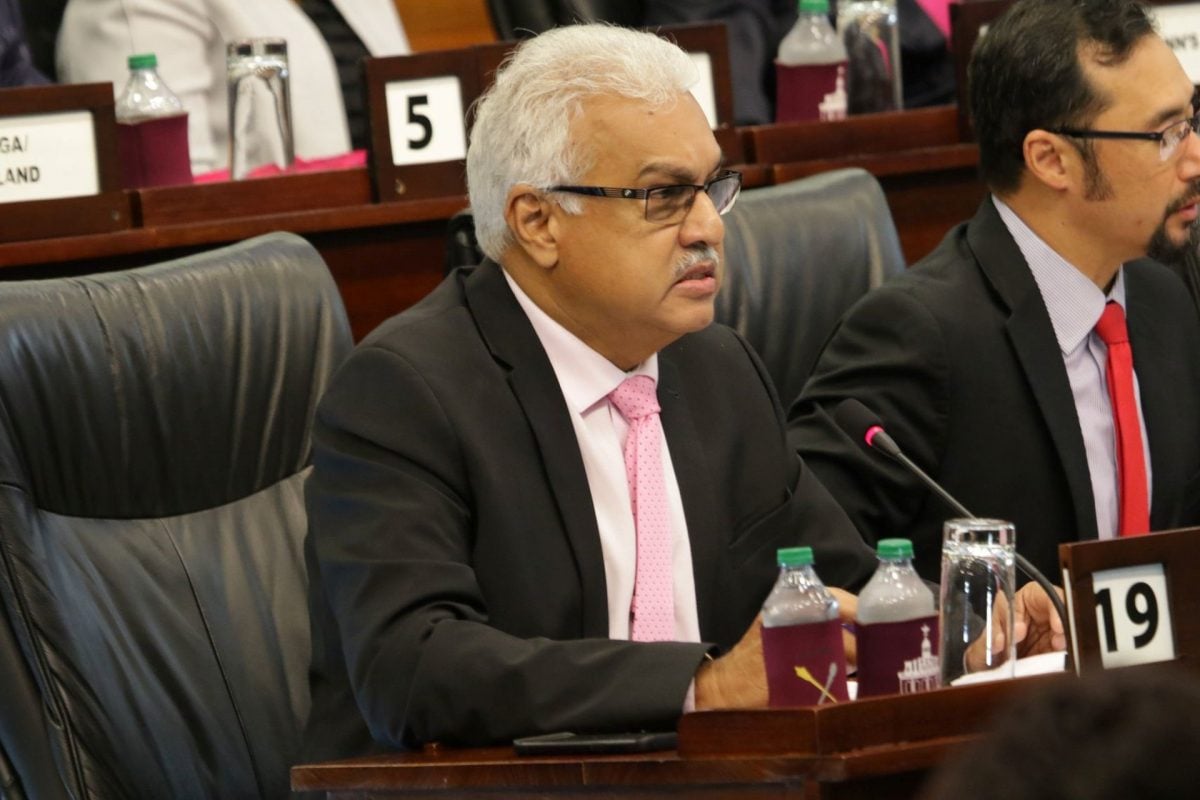(Trinidad Guardian) The number of local deaths attributed to the novel coronavirus (COVID-19) has risen to three.
The Ministry of Health’s confirmation that a third person had died came exactly one hour after media personnel learned of it around 3.15 pm yesterday.
However, the ministry once again did not give any details as to the patient’s sex; age; co-morbidity; admission date and even the facility where he/she would have been warded.
Further efforts to get that information from Health Minister Terrence Deyalsingh and Chief Medical Officer Dr Roshan Parasram were unsuccessful. Within the last week, both men have consistently argued that patient confidentiality must be protected at all times despite the fact that critical information about patients who test positive could be used by people they may have come into contact with to self-quarantine and seek medical advice through the hotline set up to do so.
Following an overnight increase of ten new cases, up to 4.14 pm yesterday, the ministry said the number of people who had tested positive now stands at 76. The number of samples submitted to the Caribbean Public Health Agency (CARPHA) for testing also stood at 500, while the number of people discharged from hospital remained at one.
In the second of two daily updates, the ministry said of the total number of positive cases, 49 of them had come from the group of nationals who recently returned from a Caribbean cruise and were quarantined at Camp Balandra.
A breakdown of this revealed that 46 positive cases came from the group of 68 nationals who returned from the cruise together, whilst three positive cases were recorded from nationals who returned from the same cruise but came in independently of the other 68 nationals.
But the Ministry of Health’s policy on disclosing information about patients seems at odds with other policies across the globe.
According to UK General Medical Council guidelines, there are several clauses which speak to the disclosure of patient information to protect others under the heading Disclosures for the protection of patients and others.
Paragraph 60 states, “Doctors owe a duty of confidentiality to their patients, but they also have a wider duty to protect and promote the health of patients and the public.”
Paragraph 61 notes, “Some laws require disclosure of patient information for purposes such as the notification of infectious diseases and the prevention of terrorism. You must disclose information if it is required by law, including by the courts.”
Under the sub-heading “Disclosing information in the public interest,” paragraph 63 states, “Confidential medical care is recognised in law as being in the public interest. The fact that people are encouraged to seek advice and treatment benefits society as a whole as well as the individual. But there can be a public interest in disclosing information to protect individuals or society from risks of serious harm, such as from serious communicable diseases or serious crime.”
Paragraph 64 adds, “If it is not practicable or appropriate to seek consent, and in exceptional cases where a patient has refused consent, disclosing personal information may be justified in the public interest if failure to do so may expose others to a risk of death or serious harm. The benefits to an individual or to society of the disclosure must outweigh both the patient’s and the public interest in keeping the information confidential.”
Health Minister Deyalsingh has insisted, however, that his ministry will not give out any details about patients who either contract the virus or die from it.





